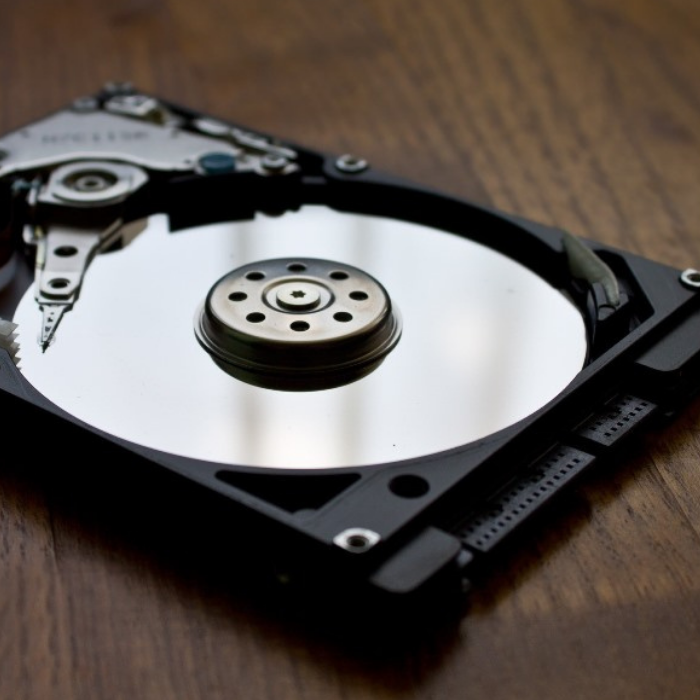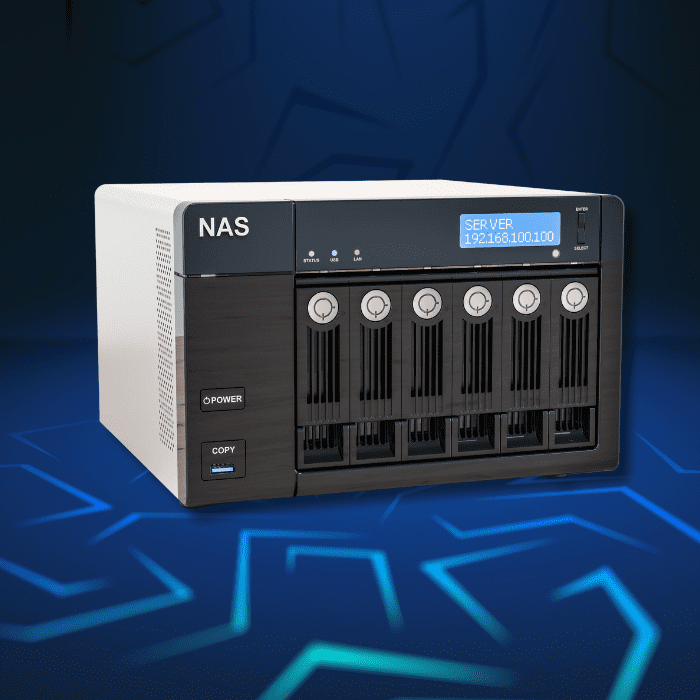Could a noisy disk drive be a sign of a problem? Many people get worried when they notice that their computer is making a loud sound or when their external disk makes “tec tec tec”. After all, nobody wants their computer to stop working from one moment to the next. We store our most important documents on it, and often files that can’t be found anywhere else.
But is this noise normal? How do you know and understand what’s going on? In this article, you’ll learn what noise means and what are the risks to your equipment.
Noisy disk drive: is this normal?
First of all, it’s important emphasize that it’s normal for there to be some noise in most hard disks. This is because they are mechanical structures, made up of a magnetic disk and a mechanical arm, which reads and records the data. In this process, you may hear the disk working at times, especially when you turn the device on or off.
But be careful. Not all noise is normal. That’s why we’ve brought you some tips for identifying situations that could be problematic, such as the disk making a lot of noise or strange sounds.
Disk with clicking noise
One of the noises that most worries owners of computers and external disks is the clicking noise, also known as the “click of death”. In general, this may indicate physical damage to the disk and it is not recommended to continue using it. A data recovery company should be consulted if the data is important.
Disk with cricket noises
However, what about when the noise is so low and constant that it sounds like there’s a cricket on your computer or external disk? In these cases, a more complete assessment is needed, but it may be that the noise is normal.
As we explained, the disk’s mechanical arm records and reads the information on the magnetic disks, which rotate around an axis. This movement can be heard in some models, but it’s important to pay attention. Below we’ll show you how to test your hard disk to see if everything is OK.
Disk with needle noise
Another sound that can scare users is the sound of a needle scraping across a disk. This sound can also be a sign of physical damage to the hard disk’s read and write head, which reads the platter surfaces.
When this part is broken or otherwise defective, it can make a strange noise, so it’s important to pay close attention to this sound. We also don’t recommend continuing to use the disk and advise you to look for a data recovery company if the data is important.
Disk beeping
Another noise that can be a sign of trouble is the “beep” sound. Similar to clicking, this noise can be the result of physical damage (such as falls or exposure to water and heat), failures in the motor or read head, among other problems. Like other strange sounds, this can be a serious problem and we don’t recommend using the disk any more.
External disk making “tec tec” sounds
Finally, a common problem can also be an external disk making “tec tec”. The sound is similar to the clicking noise we explained earlier and is probably related to physical damage to the hard disk head.
Disk making a lot of noise and not recognized
And when the disk makes a lot of noise, is it also failing? In this case, it’s very probable that the part has suffered mechanical damage. It’s important to check that the problem isn’t with the cable or the USB port you’re using in the case of an external disk.
In addition, an outdated driver can also cause the disk not recognized. Check these elements and, if you still can’t find a solution, check out our tips below!
Why does the disk make noise?
In the situations above, you’ve already understood a little about the problems that can cause disk noise. But in order to solve each of them, it’s important to understand them in more depth. That’s why we’ve listed some of the flaws that could be causing the noise.
Insufficient power supply
If the disk is not receiving enough power, this can disrupt its operation and cause failures that generate noise. Especially as the hard disk is one of the most energy-intensive components in the computer.
The cable or data port is faulty or incompatible
In the case of external disks, a common reason for noise can be a problem with the cable or USB port. So try testing other ports before taking the equipment to a specialist.
Physical damage
Exposure to fire, excessive heat, water or shocks can damage the disk and cause it to rattle.
Bad Blocks
Bad blocks are, in short, a damaged block of the disk. Nowadays, disks have a technology that allows the data stored on that damaged part to be transferred to another area of the component, so it’s not even obvious that there’s been a problem.
But the headache begins when your disk has too many bad blocks and that reserve space starts to fill up. This can cause the hard disk to fail and make noise.
Head is blocked
As we’ve already explained, the disk head is the part that writes and reads your data. If it is dropped or hit very hard, this part can get stuck in the disk platters, causing the noise.
Malfunctioning spindle motor
One of the most common causes of disk noise is the spindle motor, which causes the disks to rotate when writing and reading files. When this motor stops working or has problems, the platters don’t spin as they should and cause noise.
PCB fails or short-circuits
Finally, it’s important to note that disk noise can be caused by flaws in the Printed Circuit Board, also known as the PCB. Power fluctuations, in particular, can cause problems in this part and affect other components of your equipment.
How do I test the disk to see if everything is OK?
But how do I identify which of these reasons is causing disk noise? Below, we’ll give you some test options to better understand what’s hindering your disk’s performance.
Step 1 – Check if the noise isn’t coming from another device
This tip may seem obvious, but many people don’t realize that the noise is coming from another part and not the drive. Fans, power supplies, speakers and other parts could be faulty and generating noise.
Step 2 – Run the CHKDSK command
Once you’ve excluded the possibility that other parts have issues, you can use the CHKDSK command to repair your drive and see if this is the cause of the disk making a lot of noise. To do this, simply press the “Windows” and “X” keys at the same time.
A menu will open and you should select “Command Prompt (Admin)” or “Windows PowerShell (Admin)”, depending on the version of your operating system. Then just type “chkdsk C: /f /r /x”, replacing C with your drive, and press “Enter”.
Step 3 – Use scanning software
If the previous solution doesn’t work, you can use software to identify the problem of your disk making too much noise. Programs like Disk Tune can run tests on your machine to check the disk’s performance and health: Benchmark, Health and Error Scan.
In Benchmark, you can compare your disk’s results with others that are working properly. In Health, the results should all be ok for your disk. Finally, in Error Scan, all the options should be green to make sure everything is OK.
And if, even with positive results, you still suspect that your disk has a problem, remember to back up all your important documents!
How can I recover my noisy disk drive?
After diagnosis, you should take your disk to a specialized data recovery company. Don’t try to open a disk that’s making a lot of noise or an external disk that’s making “Tec Tec”. The chances of there being a physical problem with the disk’s components are high and tampering with the parts without knowledge could end up making the situation worse and even destroying all the data for good!
If the disk has suddenly stopped working, you can call in a company that specializes in data recovery, like Bot. The important thing is not to compromise the equipment any further and to look for qualified professionals who will check whether the problem can be solved or whether the damage is irreversible.
If the disk is severely compromised, the best option is to replace the drive before it stops working altogether. After all, it’s better to solve it this way than to be surprised by a huge loss of important files, isn’t it?
Conclusion
As we explained, unexpected events happen and you may be caught off guard with a noisy disk that has stopped working. In this case, contact our data recovery services and get a quote. We can help you get your files back, even if the disk is unusable.
Get in touch now and find out how we can help!



